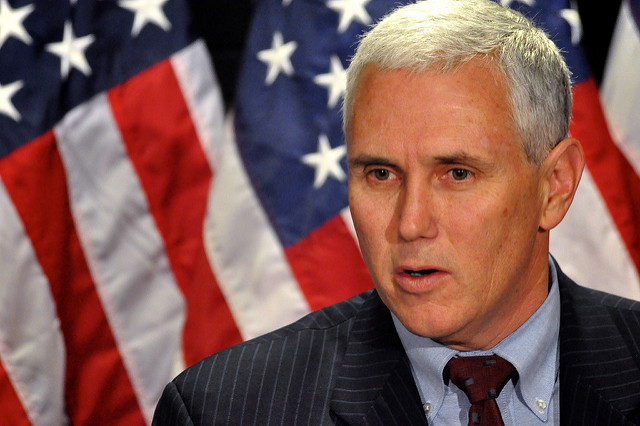
The United States’ Vice President Mike Pence has announced that its State Department will favour “faith-based groups” and the US Agency for International Development over “ineffective” UN relief efforts, reports The Independent.
Pence made the announcement as keynote speaker at the annual dinner of a Washington-based advocacy NGO In Defense of Christians (IDC) on 25 October.
In his speech, Pence launched a scathing attack on UN agencies, saying they “often failed to help the most vulnerable communities, especially religious minorities”, adding that the US “will no longer rely on the United Nations alone to assist persecuted Christians and other minorities in the wake of genocide and the atrocities of terrorist groups”.
Pence did not specify which UN programmes would be cut, but noted that the administration of former President Obama sent over US$1 billion in humanitarian aid to the Middle East through various UN programs, while Christian groups with “proven track records and deep roots in these communities” had funding requests denied by the UN.
He said that persecuted Christians had not been getting the relief they need, but that “those days are over”, promising that “the US will work hand in hand from this day forward with faith-based groups and private [organisations] to help those who are persecuted for their faith”.
At its 2016 national convention, IDC called for a “protected area” in Iraq’s Nineveh Plains for Christians and other minorities after the defeat of the Islamic State group.
In the UK, Major-General Tim Cross, a senior figure in the planning of the 2003 invasion of Iraq, has said that a lack of religious literacy within the Foreign Office and the Department for International Development (DfID) is evident “in the way aid was being given to the region, by DfID and others, largely to camps run by the UNHCR”.
He continued: “They don’t understand that for most of the minorities in the Middle East, who have suffered terribly over the last few years, they will not go into the camps because they’re too scared to do so.” Very little aid is reaching Iraq’s non-Muslims, such as its Christians, he said, “and we’ve seen the numbers of these minorities fall dramatically in the last few years.”
The Hungarian government this month held a conference in which it reported that it has targeted support directly through local churches, giving 1.9 million Euros towards the rebuilding of 200 homes in Tel Skuf in northern Iraq.
Yesterday, all the Christian families who had returned to those homes, after Tel Skuf was one of the first villages to be retaken from IS in November 2016, had to flee again – after fighting threated to erupt between Iraqi government troops and the Kurdish Peshmerga forces who’d liberated the village from IS.